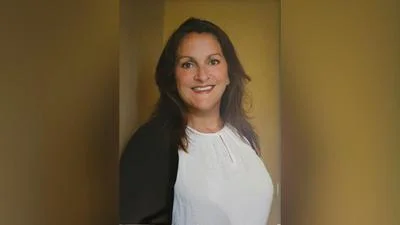La Salle University issued the following announcement.
La Salle’s executive director of admissions explains gap years, deferred enrollment, transferring, and more.
Under normal circumstances, choosing a college or a university can represent a difficult decision for a prospective student. COVID-19 has certainly complicated that process.
The coronavirus pandemic has prompted about 16 percent of prospective students in the U.S. to reconsider their college plans, according to a higher education consulting firm. The Princeton Review has predicted that three out of four prospective students will choose a college or university within a 180-mile drive of their home due to the pandemic.
“This group of students, those who either started college this fall or are applying to colleges today, is facing an environment unlike one that recent generations have ever seen,” said Jim Plunkett, ’95, ’06, La Salle University’s Executive Director of Admissions. “It’s important for admissions teams and counselors to do everything they can to make this process as easy for these students as possible, recognizing that they have been through a lot to get to this point.”
What options are available for college-age students? Should a student defer enrollment and take a gap year?
Here’s what to know:
What is a gap year?
A gap year represents a period of time—in most cases, a year—during which a student will defer enrollment to a college or a university in order to pursue professional, service, or travel opportunities. As many as 40 percent of prospective college students have considered taking a gap year, Inside Higher Ed reported recently.
Historically, students have taken gap years for multiple reasons. Financial uncertainty, academic instability, and personal or family hardship represent just a few. The COVID-19 pandemic qualifies as another.
There are benefits to taking a gap year, Plunkett said.
“The gap year requires self-discovery. A year of service helping others, or gaining work experience, saving money, and staying active in your community can also help a student get a head start on their lives after high school,” Plunkett said. “A gap year should be used to create opportunities that will contribute to the students future collegiate experience.”
Second-guessing the gap year
It’s possible that students taking a gap year for the 2020-21 academic year may change their initial plans. And it’s also possible to enroll at a college or university for the spring semester.
“We’re finding that students are actively chipping away at the needs and requirements for their four-year bachelor’s degree,” Plunkett said. “It is a seamless process to transfer. For those who took a gap year, starting at a college or university midway through the academic year is something to consider, too, and it’s achievable.”
Students who deferred enrollment, in some cases, have applied and earned acceptance to their preferred college or university. While each institution is different, Plunkett said students should contact the respective admissions offices to learn more about enrolling. At La Salle, Plunkett’s admissions team retains students’ application materials for a year. “A simple email to us saying, ‘I’d like to get started at La Salle,’ gets the ball rolling for us with students who already have been accepted,” he said.
Next steps
Students, whether they are beginning their college journeys or transferring from one institution to another, should be aware of application deadlines.
It’s possible to enroll at a university for Spring 2021, so long as the prospective student completes and submits an application by mid- to late October, Plunkett said. For high school seniors, that same timeline is in play.
“It’s going to be slower to get materials out and received, since many colleges and universities are operating remotely—at least in some capacity,” he said. “I’d encourage any student applying to their preferred university to send materials before the end of October.”
Know your options
Colleges and universities around the country are creating flexible options during the pandemic that cater to new and transfer students. Institutions are becoming flexible on their requirement for a standardized test score, or doing away with it altogether, due to the scarcity of SAT and ACT testing locations. Also, they have turned to hybrid or fully remote instruction models.
“New students need to know that we at La Salle are working with them to produce the best experience available,” Plunkett said. “It’s important that we create a college experience that’s equitable and accessible for all students.”
When and where possible, visit campus
Not every college and university has returned to offering on-campus, in-person tours. La Salle is offering guided tours of campus by appointment only, to ensure adherence to physical distancing guidelines. Schedule a campus tour or visit La Salle with a virtual tour.
Ask for help
Prospective first-year or transfer students interested in La Salle can email admiss@lasalle.edu. First-year students can call 215-951-1500, and transfer students can call 215-951-1400. An admissions counselor will get back to a student, in most cases, within 24 hours.
Original source can be found here.


 Alerts Sign-up
Alerts Sign-up